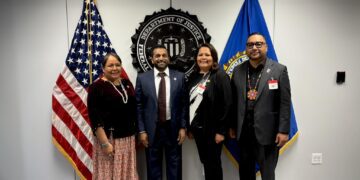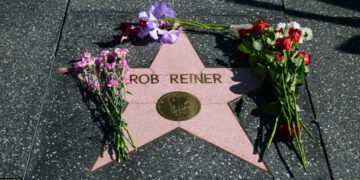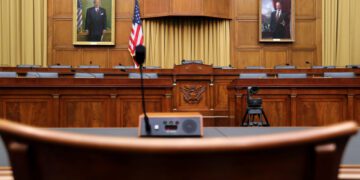By John F. Di Leo -
The Declaration of Independence was written to be many things: a summary of our grievances with the King, an explanation of why we were taking up arms, an inspiration to our own citizenry, an introduction to foreign nations, a philosophical statement of what we Americans believe to be the proper relationship between a people and their government, a commitment to the Glorious Cause of liberty.
And it closed with a powerful commitment – not only on behalf of the nation as a whole, but a firm commitment by the individual signers themselves. The final clause, right before the delegates’ signatures, read as follows:
“And for the support of this Declaration, with a firm reliance on the protection of Divine Providence, we mutually pledge to each other our Lives, our Fortunes, and our sacred Honor.”
In this jaded age, we know that politicians make lofty promises all the time. Many of them give speeches or issue press releases saying they “take full responsibility” for this or that, but then raise money for their legal fees or run for reelection anyway, with no intention of really putting their own personal freedom or bank accounts at risk for anything.
Well, on a hot July in Philadelphia in 1776, these statesmen knew exactly what they were doing: every one of them knew that signing this document – in the eyes of Great Britain, committing treason against their king – could easily be their death warrant, but they signed it anyway… and this commitment was shared by an entire noble generation of courageous patriots, whom we today refer to as our Founding Fathers.
John Hancock and Samuel Adams
In 1776, John Hancock had been a Boston selectman, and then a member of the Massachusetts house of representatives, since the mid 1760s, when the Stamp Act crisis awakened a recognition in the eyes of many that our relationship with our distant government was no longer mutually beneficial. He became a leader in the subsequent boycott against British goods, and used his shipping company to help supply the colonies with other countries’ goods to help survive the boycott. Hancock was serving as president of the Continental Congress at the time of the Declaration.
Samuel Adams was also a Boston entrepreneur who became well known during the Stamp Act crisis. Serving alongside John Hancock in the Massachusetts House of Representatives, as the legislature’s clerk from 1766 to 1774, he was one of the most vocal speakers against British tyranny… but his opposition to the Hanoverian tyrants began much earlier, as he’d begun to recognize the Crown’s anti-libertarian impulses much earlier. As arguably one of America's earliest rebels, Samuel Adams had co-founded a politically-focused newspaper – The Independent Advertiser – way back in 1848, in response to England’s immoral practice known as “impressments” – the practice of kidnapping civilians at harbors and forcing them to serve on British sailing vessels.
The British had therefore had both Hancock and Adams in their sights for years, long before the troubles of the 1770s developed into war.
In June of 1776, just weeks before the Continental Congress issued their Declaration of Independence, British General Thomas Gage, then ruling Boston under martial law, offered a conditional general amnesty for the entire city if they would give up their hostilities and accept British rule again… except for two people.
The amnesty Gage offered in this famous proclamation excepted only two Bostonians: everyone would be forgiven – even the Sons of Liberty, the tea partiers, the rabble-rousers and local selectmen – except for John Hancock and Samuel Adams. As broadminded as General Gage was willing to be at this point – after a year under siege by the Continental Army that was surrounding the city – he couldn’t bring himself to pardon Hancock and Adams. If caught, these two would surely hang.
Henry Laurens
Henry Laurens was a South Carolina merchant and slave trader, first elected to South Carolina’s colonial legislature in 1757. He was a loyalist throughout most of his political career – working toward reconciliation with Britain – like many others, only joining the cause of independence in the mid-1770s when British tyranny and intransigence became undeniable. South Carolina sent Laurens to the Continental Congress six months after the Declaration, and he was elected president in November of 1777, succeeding John Hancock.
Following his year as president, Henry Laurens was appointed our ambassador to the Netherlands. After a successful mission there – negotiating Dutch support for our American war effort against Britain – his ship was stopped by the British and he was captured. Henry Laurens was imprisoned for fifteen months in the Tower of London.
By the end of the war, his home and entire estate had been destroyed by the British, and his eldest son, the inspirational abolitionist and Washington aide-de-camp John Laurens, was killed on the battlefield. He knew all this was possible, if he opposed the crown, but he did so anyway.
Lewis Morris III
Lewis Morris hailed from the Dutch community of New York, and had served as a judge in the Admiralty Court since 1760, joining the colonial assembly of New York in 1769. He also joined the revolutionary cause on the late side, when British tyranny could no longer be explained away, and resigned his royal judgeship to join the New York Assembly – the revolutionary legislature in 1774.
As a New York delegate to the Continental Congress, Lewis Morris knew that his home was in the path of the most likely British invasion force. In fact, the British landed tens of thousands of men at New York City within weeks of the signing of the Declaration, and they destroyed his entire estate – Morrisania, in Westchester County – by the end of August.
Less than two months after signing the Declaration, his family was homeless; it took them years to rebuild the estate after the war. But he served in politics, and as a general in the New York state militia, throughout the war, because the cause was right.
He knew the risks. But he signed anyway.
Benjamin Franklin
Benjamin Franklin was indisputably the best known American on earth at the time of the Revolution. He had become famous as a writer, publisher, scientist, lecturer, and diplomat, over a long career in both Pennsylvania and England. He had, in fact, spent decades in England as a colonial representative, first representing Pennsylvania and eventually representing five colonies. He was a loyalist who believed our relationship needed repair, but was too valuable to both sides to sever… until 1775.
When Franklin returned to America after many years in England and Europe, he immediately realized that conditions had changed. We were no longer the frontier outpost of a great empire; we were developing into a different country of our own. Americans had become a separate people, with potential far greater than the administrators and royals in London understood.
Franklin realized in May of 1775 – with the suddenness of a scientist making an unexpected discovery – that the situation had changed, and the cause of independence, which others had argued for years, was in fact the logical position. He happily attended the Continental Congress as a delegate from Philadelphia, and supported independence despite his years as a conciliatory figure.
Unlike many of our other Founding Fathers, Franklin didn’t risk mansions and plantations to be destroyed by the fires of battle, and he didn’t lose his life or other family members to gun or sword. But he serves as an excellent example of another of the risks of revolution: the division of families.
Benjamin Franklin’s son, William Franklin, was the last colonial governor of New Jersey. As one of the most prominent American loyalists throughout the revolution, William Franklin was imprisoned by the patriots, and then spent the rest of the revolution organizing loyalist units to support the crown against the patriots.
Ben Franklin knew that in supporting the patriot cause he would be severing his ties with his own son… having spend decades in England, he had hundreds of friends and correspondents there, whom he would most likely never see again, possibly even never correspond with again, as mail service during war could hardly be expected to be reliable.
Ben Franklin knew all this, and as a scientist and philosopher could consider every aspect, every outcome… but he sided with the patriots anyway, because the cause was right. As he is said to have quipped at Independence Hall, "we must, indeed, all hang together or, most assuredly, we shall all hang separately!” Dark humor, perhaps, but true, and valiant.
Many Founding Fathers lost their own lives, or the lives of their families and friends, in the many battles of our eight-year long War of Independence. Many lost their homes, businesses, ships, and farms. Many lost their fortunes, as currency lost its value and customers were impoverished and unable to pay their legitimate debts. The long war was hard on everyone who supported the Glorious Cause…
…and they knew it would be, from the start. They were under no illusions. None of the Founding Fathers could see the future – none could be sure of victory. In fact, the closer to it they were, the darker our prospects looked. But they had the courage to participate anyway, to take a stand for liberty, against all odds.
Our Founding Fathers – both those who signed the Declaration of Independence and the thousands of statesmen and activists up and down the colonies – had the courage of their convictions, and were committed to this American experiment: a republic, with a constitutionally limited government, dedicated to the cause of human freedom.
This is what we celebrate on Independence Day – not only our place in the world as the beacon of liberty that all others dream of, but also the individuals who made it possible, the American Founding Generation, the people who risked it all for the cause of freedom.
It is because of them – because of their vision, their commitment, and their courage – that we can proudly say, every July 4th:
Happy Independence Day!
Copyright 2019 John F. Di Leo
John F. Di Leo is a Chicagoland-based international transportation and trade compliance professional, writer and actor. His columns are regularly found in Illinois Review.
Don’t miss an article! Use the link in the margin to sign up for Illinois Review’s free email notification tool so you always know when IR publishes new content!







